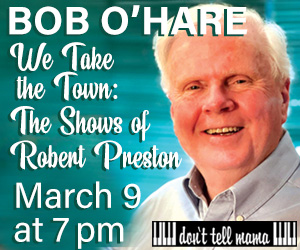Theater Review by Samuel L. Leiter . . . .
Perhaps the most admired fairytale musical ever, Stephen Sondheim’s Into the Woods, might hesitate before calling itself perfect, so you must take with a grain of salt the subtitle of My True Love: A Perfect Musical Fairytale, now running at Off-Broadway’s Players Theatre. Imperfect as it is, it nevertheless provides a comically spirited romp through a magical fairyland—called Magicland, of course—to tell the story of a pretty, redheaded young witch called Cedarella (Mairead Connor, strong-voiced and adorable), who wants nothing more than to fall in love with the perfect prince. Written and composed by Ben Boecker, who has been developing it for 13 years, My True Love—originally created as a college honors thesis called The Good Witch—comes to New York under the sparkling direction of Carolyn Popadin (full disclosure: a former student of mine).
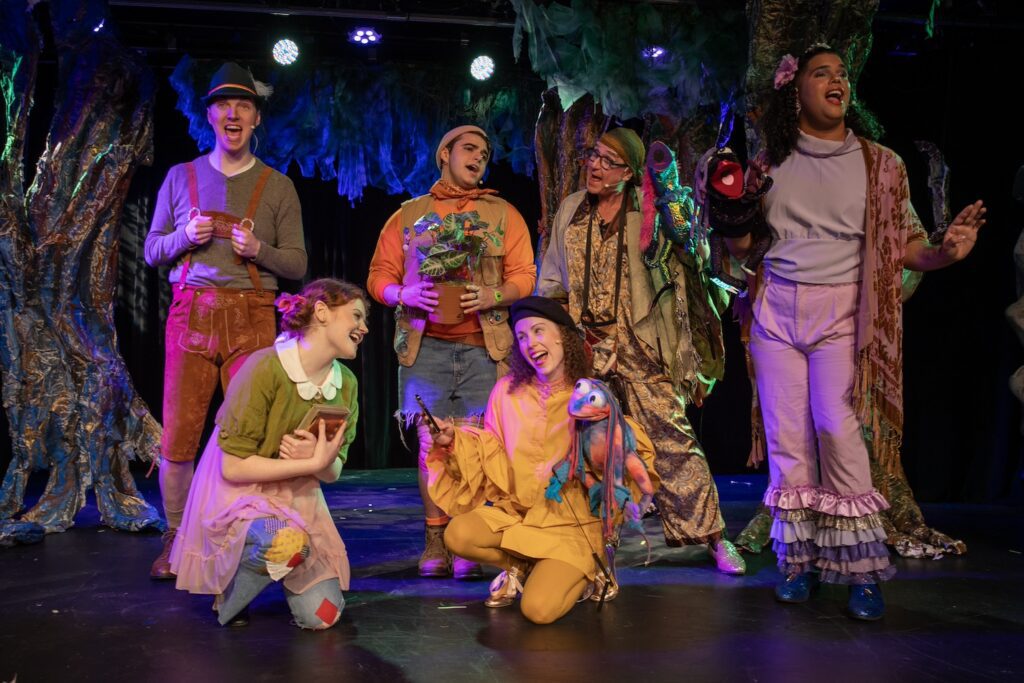
My True Love is performed with let’s-put-on-a-show brio and campy enthusiasm by a vigorous cast of seven, most of whose credits tie them to Long Island: Popadin is on the theater faculty of the Usdan Summer Theatre Camp for the Arts, in Wheatley Heights, where the show premiered in 2022, and to which it is dedicated. It takes place in an enchanted forest, reminiscent of Into the Woods, to which, in fact, it pays homage. There’s even a visit from Bernadette Peters, who starred in the 1987 original, or at least an approximation of her in the person of the scene-stealing Livi Rose, terrific in three bewigged roles.
It’s that kind of show, a silly, anything-goes, absurdist fantasy, including gender-bending performances involving an inseparable trio of witches—Cedarella’s aunts. One, the selfies-obsessed, poetess Carmaletta (Kate Keating), always struggling to speak in iambic pentameter, is played by a woman, wearing a beret and what resembles an artist’s smock. The others are played by a pair of fey men, the heavily made-up Henrietta (Ruben Fernandez), manipulating a sheer, flowing tunic, and the bizarrely costumed Pat (Joe Kassner), looking like a fugitive from a psychedelic Arabian Nights fantasy, who turns out to be a full-fledged, drag queen in spiky green hair, named Sassafrass.
For those needing trigger warnings, the farcical business includes an extended routine in which a double entendre subtext seems to inform the planting of begonias; there’s also some brief homoerotic business intended for a laugh.
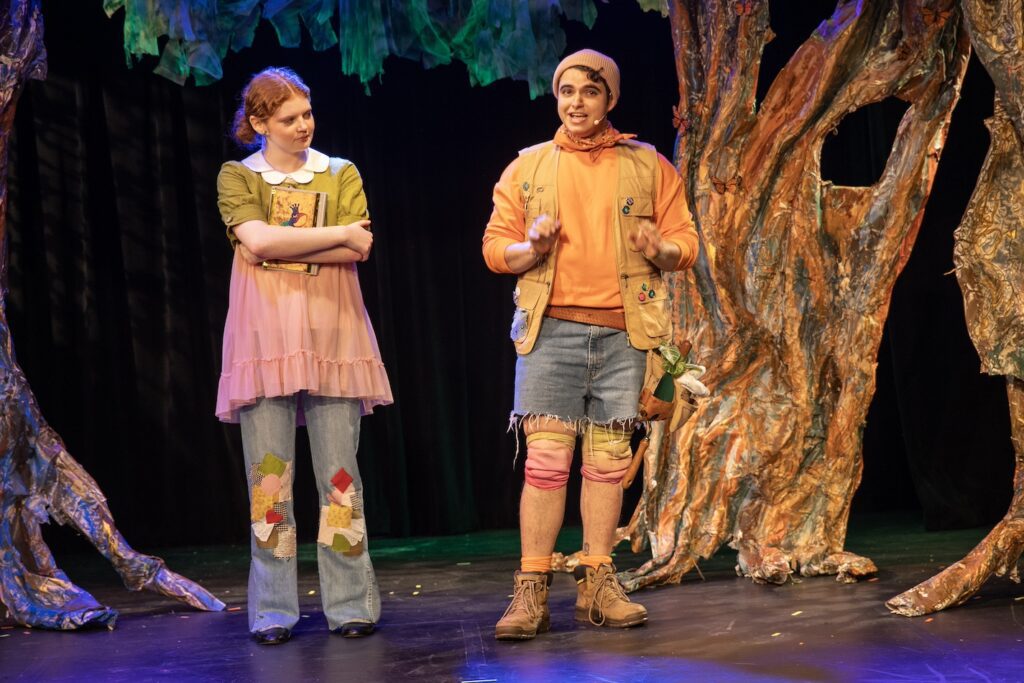
The complex plot, played out over an overlong two acts, has some deadwood that could use the landscaper’s shears. Briefly, it introduces Cedarella letting us know directly that this is “a fairytale about consent.” So right away the show’s didactic purpose is laid out when, perhaps, it might have been better for it to be clear from the story itself. We then learn that when a human named Julianna fell in love with a witch named Henrik, the other witches made him disappear and punished Julianna by stealing the love from her heart; they also cursed her with a very heavy Long Island accent, which Livi Rose, as Julianna, now called Fran, turns into comic gold. Her child, Cedarella, would be raised by the witches and, like them, would have to fall in love with a frog.
The grownup Cedarella, however, disdains osculating with a frog, yearning instead for a perfect prince—like the one in a book her parents left her—even when her witch aunts tell her that kissing her frog lover will turn the love in her heart into magic. (The dialogue contains lots of gooey stuff like this.) Then, in one of Boecker’s cleverer songs, she delivers a list of all the excellent attributes her true love must have. For example:
MY TRUE LOVE DOESN’T HAVE TO BE A LOT OF THINGS… BUT HE BETTER BE TAN AND TOUGH AND GIVE ME FINAL APPROVAL OVER HIS FACIAL HAIRS!
Boecker, however, can’t avoid some odd rhyming choices, like “admirements” (not a word) for “requirements,” which are found here and there in his lyrics, and which rhyme only irregularly. His songs are mostly upbeat, humorously inclined, and in a variety of pop styles, some refreshingly funny; a few, though, wouldn’t be missed. One would be “Love Is Weird,” sung by three frogs represented by puppets manipulated by actors hiding behind trees. Notably lacking is anything one would call a traditional ballad, the closest example being Fran’s number, “Follow Your Heart,” memorable for her Long Island pronunciation of heart as “haht.” Most of the company sings well, and Boecker himself, at the keyboard, directs a four-piece band including guitar, drums/percussion, and violin.
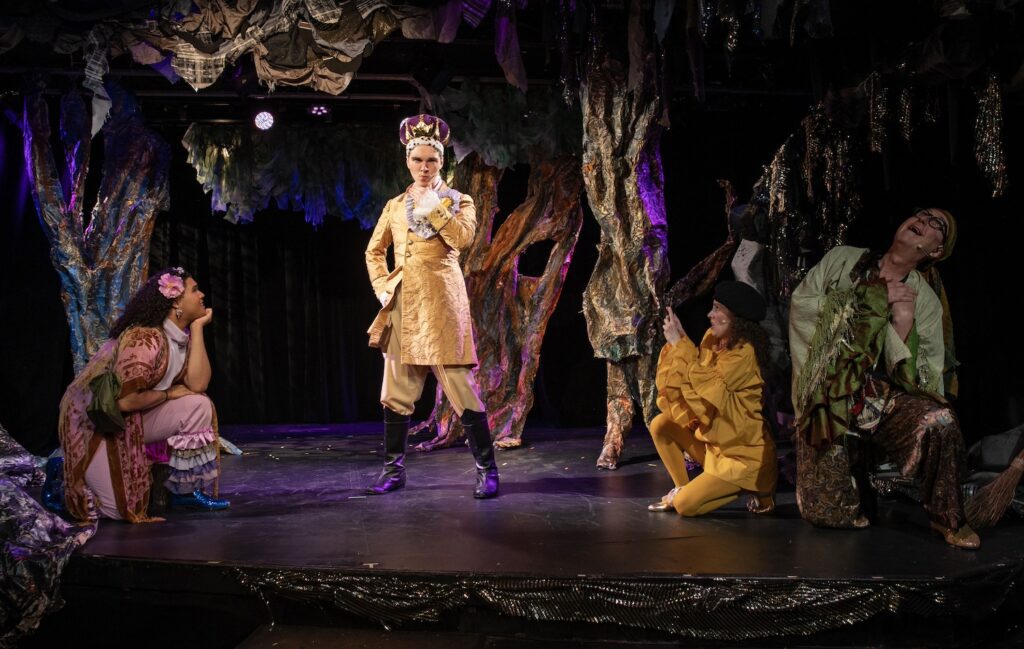
Cedarella, unwilling to kiss a croaker at her aunts’ request, runs off to find her true love, leaving her aunts frustrated because they were planning to travel through the “multiverse” to see Bernadette Peters in the 1987 Broadway production of Into the Woods. From here the deliberate absurdities continue to pile up as Cedarella meets Hunter (Julian Schenker), a wool-capped “extreme gardener” from Nebraska wearing work boots and shorts, who will figure as her likely lover, although she’s not much interested at first. His mission in Magic Land is to plant Ecuadorian begonias—don’t ask.
Hunter’s romantic competition will be a pompously self-loving Prince Charming-like robot called Love-Machine (Andrew McNamara), the complications will continue, and there will be lots of palaver about hearts being closed to love (without which magic—like getting to that 1987 production—is impossible) when the witches’ code is broken by love stolen without consent. To fix things, the aunts will try to steal Cedarella’s love with consent (the subject of a song) by creating the princely Love-Machine. Cedarella will then reunite with her mom (again, don’t ask), who will teach her to “Just say, ‘no!’,” empowering her to stand up for herself.
Little will make sense, much less be believable, and everything—including that visit from Ms. Peters herself—will end happily ever after once Cedarella realizes the fairytale version of love is no match for the real thing. Still, the socially redeeming message remains, as Pat sings: YOU ALWAYS NEED CONSENT WHEN YOU’RE STEALIN’ LOVE. Get it?
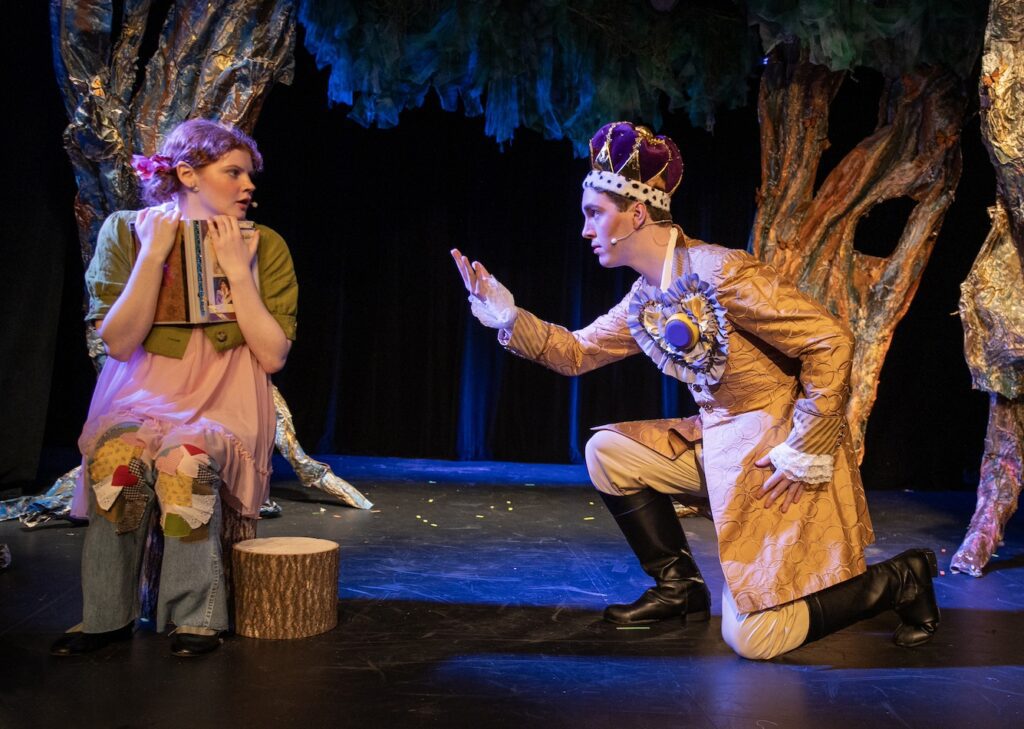
Michael Arriaga’s bewitched forest set, with its theatrical adornments, is suitably quirky; Shino Frances lights everything colorfully; Chris Neuner’s sound design is effective; and Chloe Levy’s eclectic mix of wittily eccentric costumes clicks. Carolyn Popadin keeps things popping with happy results, and Lauren Bobrow’s choreography, limited though it be, is yet another positive.
The performances in My True Love range from high quality—Livi Rose and Mairead Connor in particular—to never-less-than acceptable, and everyone is clearly having a good time. At the Saturday matinee I attended, that included the audience as well, which seemed to embrace My True Love as theirs.
Note to users of the Players Theatre men’s room: if you use the stall, don’t lock it, unless you have a witch’s powers. I got stuck in there because of a broken lock, a lavatory nightmare I’ve had for years. If someone on the other side had not heard my plea for help, I’d be writing this on my iPhone. And I don’t know how long I could have lasted without more entertainment than the countless pictures on the walls of rock legends like Joan Jett, the Sex Pistols, and Jimi Hendrix.
My True Love. Through June 2 at the Players Theatre (115 MacDougal Street, between West 3rd Street and Minetta Lane). www.mytruelovemusical.com
Photos: Asher Dorlester

